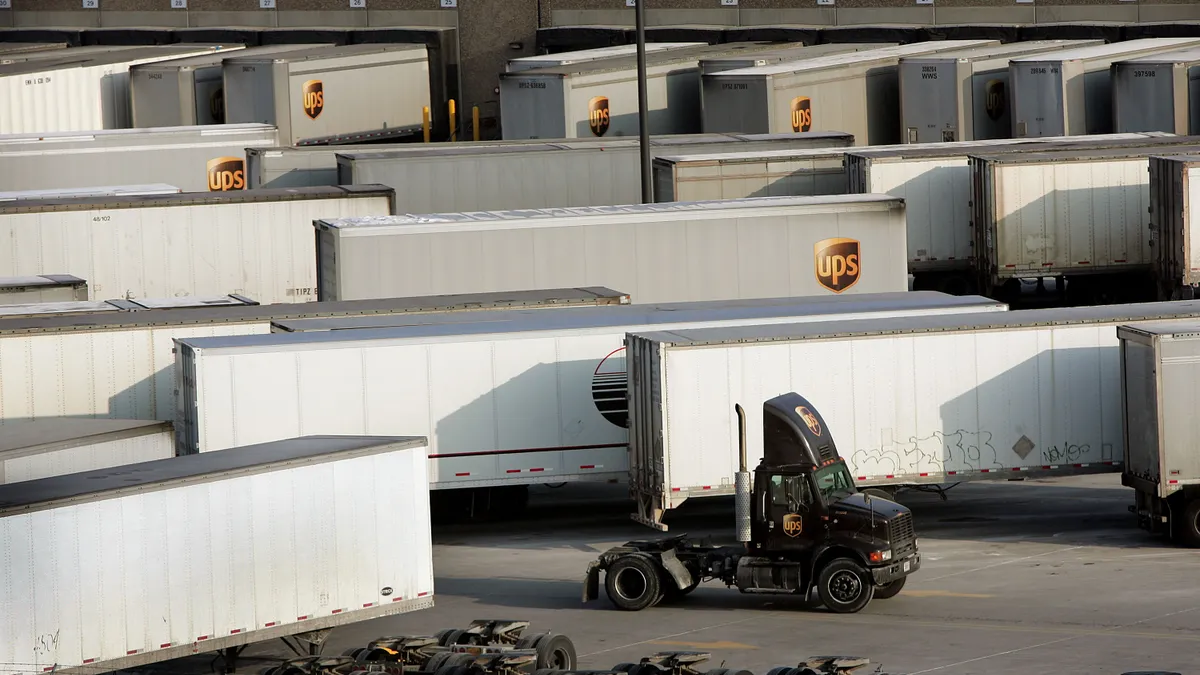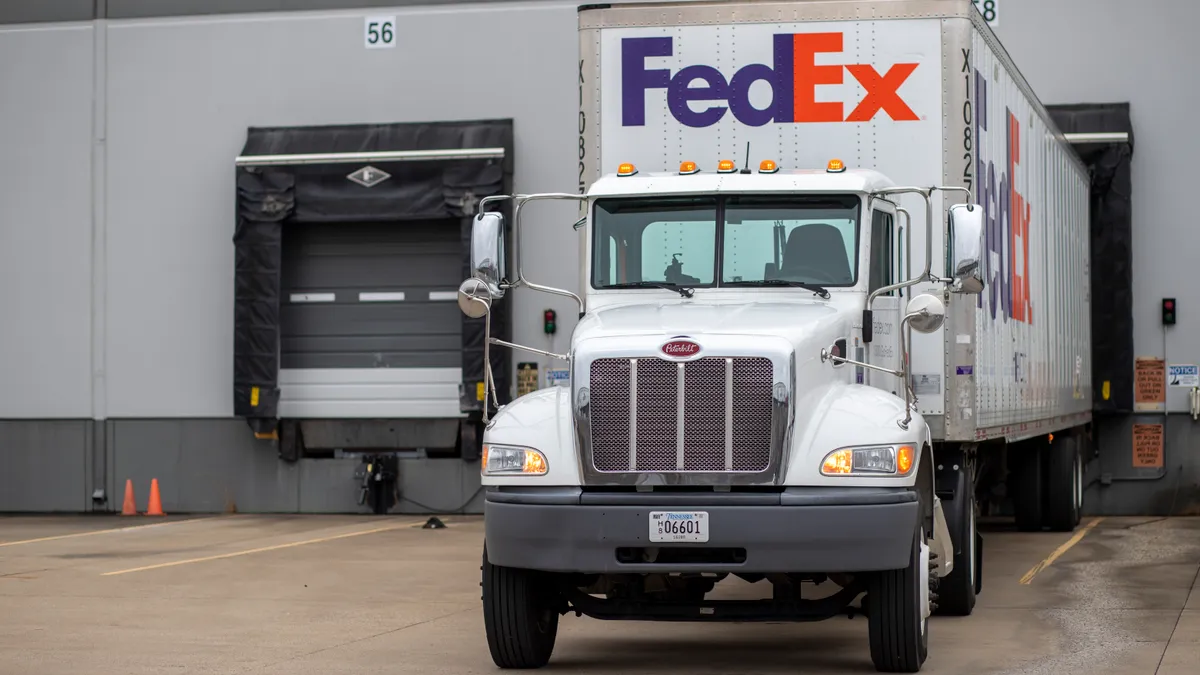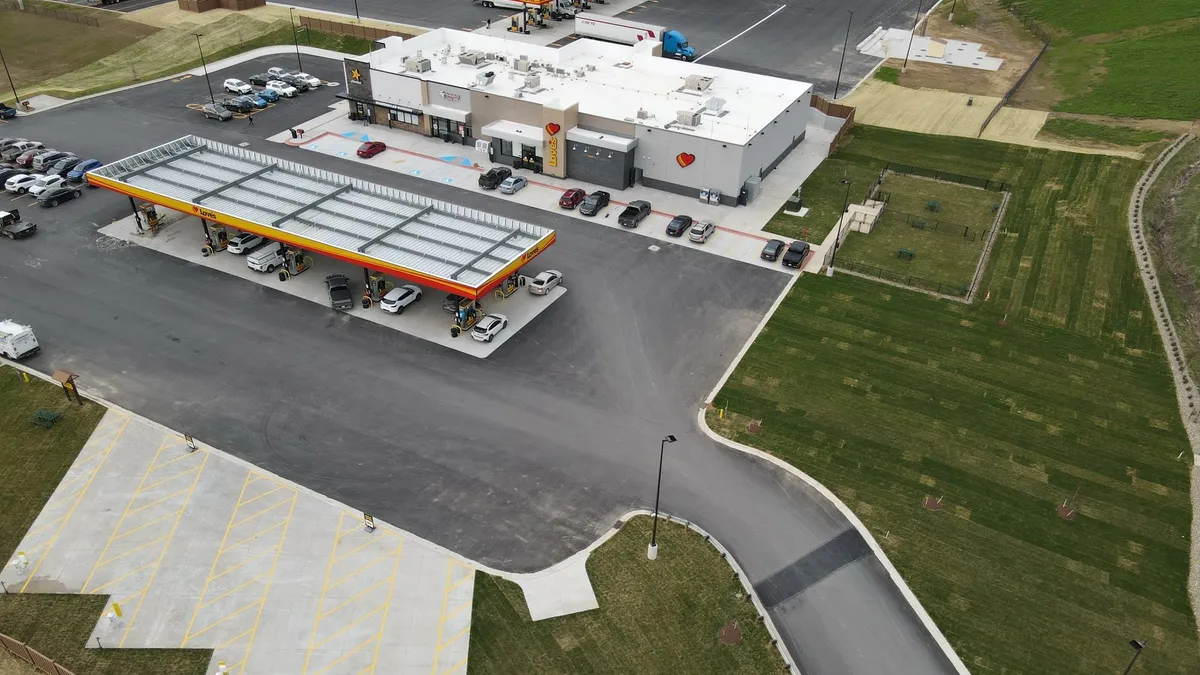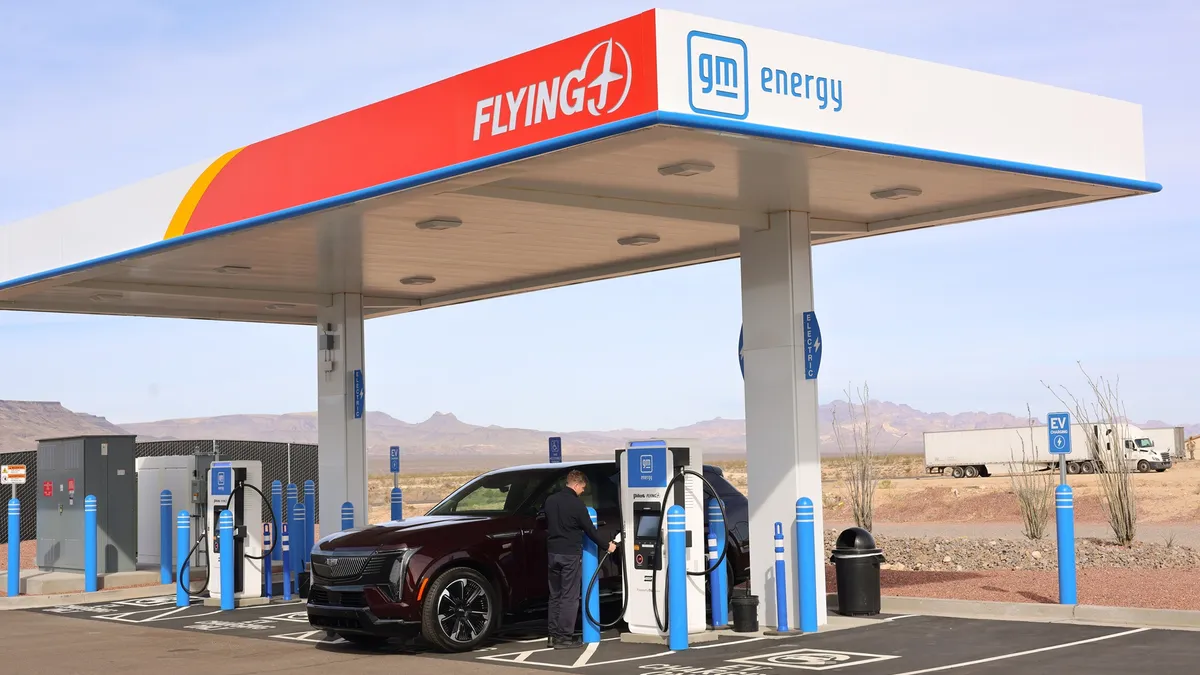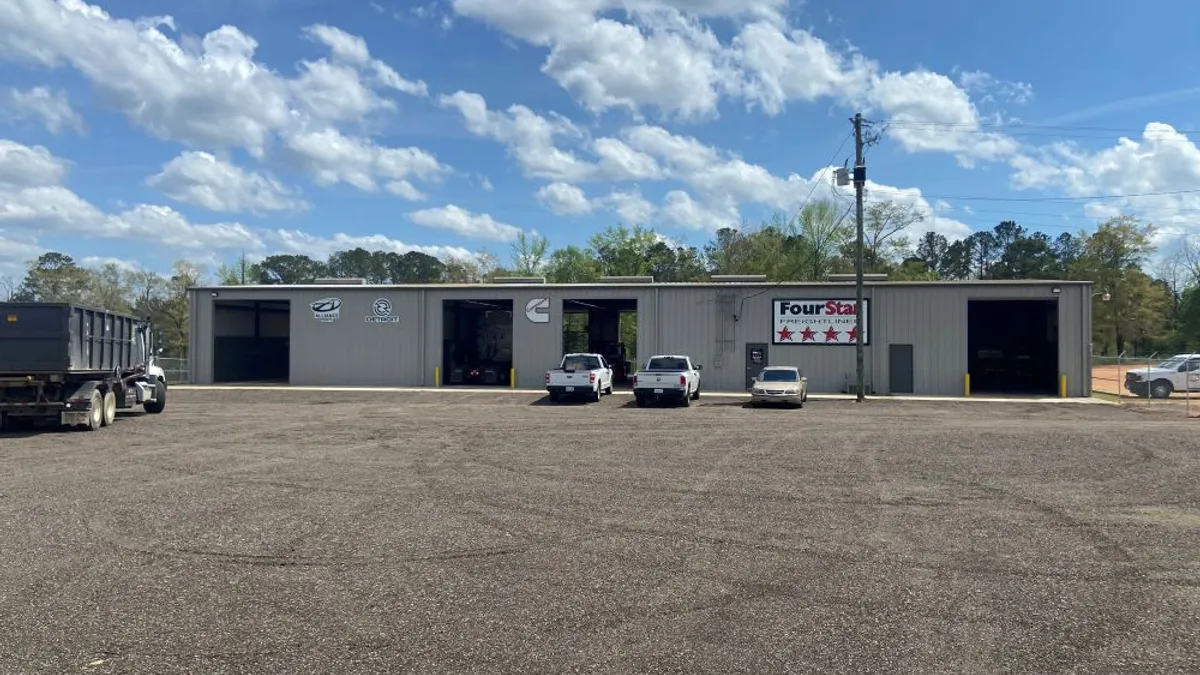TFI International is working to shore up UPS Freight's weaknesses, now months after the Canada-based firm acquired that segment from UPS and renamed it TForce Freight.
The fixes include hiking prices on major customers, passing on some types of freight, lowering truck speeds and decreasing door capacity, CEO Alain Bedard said during an earnings call Monday.
TForce Freight is "outperforming expectation," Bedard said. But he also admitted there's still "a long way to go" to address all of TForce Freight's cost issues.
Parcel is and has been UPS' priority. So, some freight-division expenses — a few of which Bedard noted are "not normal" — went unaddressed.
"We're going to spend a lot of time and energy working with the team there to make things happen, as fast as we can," Bedard said.
He maintained the company will achieve an operating ratio below 90%, potentially within the next six quarters. TFI reported adjusted OR for U.S. LTL is 90.1%.
The fix-it list
Bedard spoke candidly, and colorfully, about the aspects of TForce Freight that need to be addressed and corrected.
Losing money during some months
The problem: "In our world of LTL, we never lose money in a month. In the world of TForce Freight today ... if you go back and look at every [year], there's a few months in a year that the company was losing money," Bedard said.
The fix: TFI will address the cyclically at TForce Freight, Bedard said. Losing money during a few months each year is "something that we're going to be working on with the team," he said, not divulging further detail.
Freight that doesn't fit
The problem: "We're not in the business of holding freight just for the pleasure of holding freight," Bedard said. He gave the example of shipment with revenue of less than $100 as freight that would not fit in the network.
The fix: When it comes to freight that doesn't fit TForce, the partnership TFI has with UPS Ground, as part of the acquisition, has come in handy, Bedard said. If the freight isn't right for TForce, but it's conveyable, then TFI can ask UPS to take it.
If UPS Ground doesn't want it either, TFI might look to its last-mile division. "Although, so far, we have not introduced our last mile guys yet," Bedard said. "But it's another card in the deck that we could play with our customers."
Appointment freight at cheap rates
The problem: "We have a customer whereby we have about 400 trailers of freight every day for appointment. And this customer was paying a very cheap rate of $19 a day after five days," Bedard said.
The fix: "We've corrected that for $50 after two days," he said.
Less-safe driving
The problem: "When we bought the company, the trucks were running at 68 miles per hour. And then we did the study of our peers in the U.S., and we found out that everybody is at 65. So, why run 68? Well, it's because nobody knows why," Bedard said.
The fix: "We are adjusting the speed of our truck to 65 to be safer on the road," he said.
Undesirable agreements with large customers
The problem: "We used to do about 1,500 shipments a day for less than $100 out of 33,000, 34,000. So, a shipment of less than $100 — you lose your shirt on that. So, if you stop doing that, well, this is addition by subtraction," Bedard said. "Sometimes a shipper pops up, and you haven't seen him for three weeks. And now, whoops, he comes up with a shipment for $70, because we had an agreement with him and we have lots of agreement with customers ... Our largest account, we were running with this large account 120 OR. I mean, what is this, guys? What were we smoking when we gave the [rates] to this guy?"
The fix: "July 1, we addressed the situation with this shipper," Bedard said, without going into detail.
Undesirable dedicated TL contracts
The problem: "Don't forget that our U.S. TL that we got from our friends at UPS, we run 110 OR with this division — it's a disaster. I mean, it's just terrible," Bedard said. "So, our truckload operation will turn around, will improve. But that will take a little bit more time, because what we got from this acquisition is a lot of garbage, in terms of contracts."
The fix: Signing new deals with customers that have operating ratios below 90%. "It will take us some time, but this is, again, it's a small part of our business," Bedard said.
Expensive fueling infrastructure
The problem: "There's some things that we need to do in order to reduce our [fuel] costs," Bedard said.
The fix: Bedard said TFI has shut down about 30 fueling stations.
That doesn't necessarily save a lot of money, but it minimizes environmental risk and helps control fuel costs, he added. UPS' system to control fuel was "pretty weak," because "they didn't really focus on that," Bedard said.
Cargo claims
The problem: At UPS Freight, claims being 1% of revenue was considered great, because the team had gotten it down from 2%, Bedard said. But TFI prefers 0.25%. And TForce is spending about $350,000 a month for spills. "I fell off my chair when I learned that," Bedard said. "Now we are working with the team to address [that] this is not normal, guys. I mean, how, what are we doing?"
The fix: Training. "It's the way you load the trailers, and there's many things like that," Bedard said.
Too many doors
The problem: "What I can tell you so far is that we got 12,000 doors: 10,000 that we own, 2,000 that we lease. And, in my mind, to do about 33,000, 34,000 bills a day, you don't need 12,000 doors. So, for sure, we got way too many doors, number one," Bedard said.
The fix: Down the road, TFI will start to look for tenants for its doors, Bedard said. It's already talking to other carriers.
Too many terminals
The problem: Bedard used Chicago as an example. Having five terminals to serve that area is "a nightmare for the lineup," he said. "That's another situation where we're going to be looking at: Is there a way that we can service, as an example, Chicago with maybe two terminals instead of four."
The fix: TFI could add doors and remove terminals, Bedard said. "All this reorg, we haven't really started. But this is something that, for sure, it's really important to us."
Maintenance costs
The problem: "We spend about $3.5 million a month on [the] maintenance costs of our terminal network, which, to me, is just through the roof," Bedard said.
The fix: "So, we're working on now on correcting this situation, having ownership of the costs with our terminal manager," he said.
Cash on delivery
The problem: "I'll give you another stupid example: COD," Bedard said. "We're not in 1965; we're in 2021. COD — we're not going to do that, because it's a mess. So, that reduces our costs."
The fix: "We talked to the customer say, 'Hey, pay us with a credit card, but no COD,' and it’s simple. So these are all things that — it's one penny at a time, and squeeze here, squeeze there, correct this correct that. Well, we have a long way to go over there," he said.


